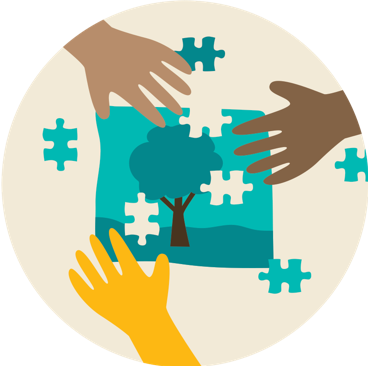
Focus and Self Control
Discover the skills that every child needs.
Focus and Self Control
Discover the skills that every child needs.
What is Focus and Self Control?
Life today can be stressful, and the skill of Focus and Self Control is especially important as we try to get everything done each day. Studies confirm children with this skill are more likely to learn from educational experiences and practice, have better academic achievement, to graduate from college, and experience better health and economic prosperity in adulthood.
Focus and Self Control involves executive function skills, including paying attention (focus); remembering what we need to know so we can use this information (working memory); thinking flexibly so we can respond to the changing circumstances in our lives (cognitive flexibility); and resisting an automatic response (inhibitory control) so we can think before acting and choose a more appropriate response.
Promoting Focus and Self Control
Here are some research-based ways to help improve children’s Focus and Self Control:
Everyday Routines
- When fixing dinner, folding the laundry or waiting in line at a store, play games with children that involve paying attention to details, like ‘I Spy’ to practice focus.
- Clean up time? Boost attention by holding up a toy and encouraging children to find similar ones to put away.

Playful Learning Activities
- As you sing a familiar song together, pause and leave out a word so children can use their working memory to add the missing word.
- When reading or telling a story, ask them to predict what will happen next; they have to pay careful attention to figure this out.
- Help practice self-control by playing games that involve “stop” and “go,” like Red Light, Green Light or Musical Chairs.
- Dance slowly to fast music and then quickly to slow music to help children focus and use self control!
Learning Strategies
- If children are consistently challenged by certain things, such as transitions or taking turns, have them come up with their own plan for how to handle the situation. You are promoting the development of self control.
- Encourage them to keep trying when they make a mistake so they learn making mistakes is a natural part of learning.
Get More Tools & Resources to Build This Skill
Skill-Building Book Tips
These free, downloadable resources offer tips for building the Seven Essential Life Skills based on classic and diverse children’s books that promote the skills. Designed for three age groups, infants and toddlers, preschoolers, and school-age, Book Tips are available in English and Spanish.
See Our Full ListSkill-Building Opportunities
Picky Eating, Bedtime Fears, Meltdowns, Constant Crying, Sibling Rivalry! We’ve researched the questions families and teachers most frequently ask and created short free guides, available in English and Spanish, for professionals and families to help turn common behavioral issues into opportunities to promote critical life skills in children.
See Our Full List